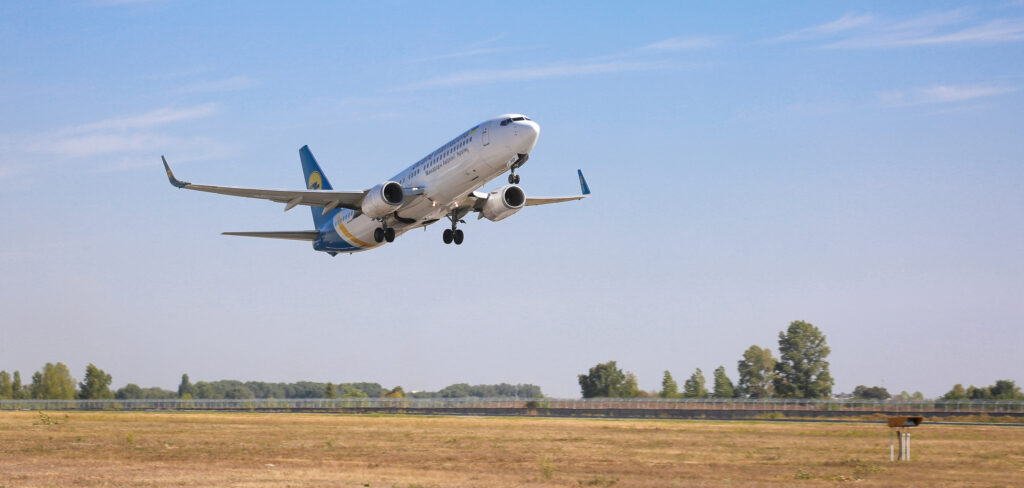The Russian military invasion of Ukraine is having a severe effect on aviation in the region. Several of the country’s airports have been attacked and airspace restrictions are now in force. Furthermore, the Russian aviation industry is subject to sanctions from across the international community.
All flights in and out of the country have been canceled after the closure of Ukraine’s airspace following missile attacks on Ivano-Frankivsk, Lutsk and Dnipro airports last week.
On February 27, the European Union (EU) banned Russian aircraft from landing in, taking off from or overflying its territory. Ursula von der Leyen, the President of the European Commission, said, “We are shutting down the EU airspace for Russians. We are proposing a prohibition on all Russian-owned, Russian-registered or Russian-controlled aircraft. These aircraft will no more be able to land in, take off or overfly the territory of the EU. This will apply to any plane owned, chartered or otherwise controlled by a Russian legal or natural person. So let me be very clear: our airspace will be closed to every Russian plane – and that includes the private jets of oligarchs.” Iceland, Norway, Albania and the UK have imposed similar bans.
These sanctions form part of Europe’s wider plan to target Russia’s economically vital industries – electronics, telecoms and aerospace – following its invasion of Ukraine. The EU has banned the export, sale, supply or transfer of all aircraft, aircraft parts and equipment to Russia and all related repair, maintenance and financial services, stating that, ‘three-quarters of Russia’s current commercial air fleet were built in the EU, the US and Canada. This means that Russia will not be able to maintain its fleet to international standards.’
The UK has also imposed sanctions on Yury Slyusar, the general director of United Aircraft Corporation (UAC) – a holding company that includes all major Russian aircraft manufacturers, including MiG and Sukhoi, and supplies key Russian military aircraft used as part of Russia’s military build-up. UAC itself is one of five major defense companies being sanctioned by the UK.
In response to the UK’s sanctions, Russia has restricted the use of its airspace for aircraft ‘owned, leased or operated’ by those associated with the UK. This restriction includes flights transiting through Russian airspace.
There has been criticism from some quarters regarding the seemingly inconsistent handling of flights to and over Ukraine in the months leading up to the Russian invasion. On February 25, Otjan de Bruijn, president of the European Cockpit Association, said, “A majority of airlines stopped operating to Ukraine weeks ago, and some have avoided the airspace for years. But others continued to carry out operations until the invasion by Russia started and the airspace was officially closed. Pilots have not forgotten MH17 and PS752 [the passenger flights shot down in 2014 and 2020, respectively, while flying over Ukraine] but I wonder if CEOs did. Maybe it made sense to continue to fly commercially but from a security and safety point of view it seemed ludicrous to continue.”
On February 26, Olivier Jankovec, the director general of ACI Europe, said, “The news from Ukraine continues to shock and sadden. It’s clear that the infrastructure of a country and the fabric of a society are being torn apart. Those whom we as ACI Europe represent are directly, acutely impacted. On behalf of ACI, both personally and collectively, we deplore any attack upon the lives and the livelihoods of our airport colleagues, their families and their communities.”

